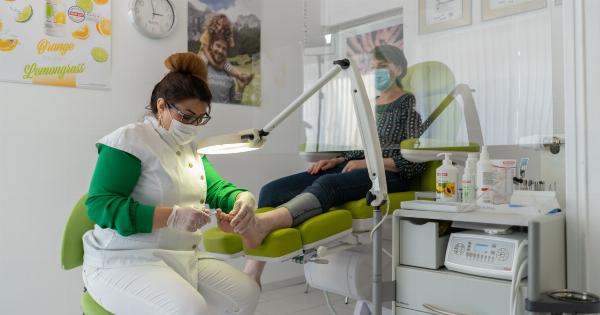Mental health issues affect millions of people across Europe, and patient associations are increasingly recognizing the need for adequate funding and support to address these complex challenges.
Efforts to amplify mental health funding have gained significant momentum in recent years, as organizations and advocates work tirelessly to improve the lives of individuals living with mental health conditions. This article delves into the various initiatives and strategies being employed by European patient associations to advocate for enhanced funding and resources for mental health issues.
The Importance of Mental Health Funding
Access to sufficient funding is crucial for developing effective mental health programs and initiatives.
Without adequate resources, patient associations struggle to provide vital support services, such as counseling, therapy, and education, that are essential for individuals dealing with mental health challenges. Additionally, proper funding enables research and innovation in the field of mental health, leading to improved treatments and therapies.
Current Challenges in Mental Health Funding
Mental health funding faces numerous challenges across Europe. Inadequate government funding often hinders the development of comprehensive mental health programs, leaving patient associations to rely on limited resources and private donations.
Furthermore, stigma and discrimination surrounding mental health issues can result in reduced funding allocations, as some policymakers and stakeholders fail to recognize the urgency and impact of mental health on individuals and communities.
Successful Strategies in Amplifying Mental Health Funding
European patient associations have adopted various strategies to amplify mental health funding and raise awareness about the importance of funding allocation for mental health services. Some of these strategies include:.
1. Advocacy and Lobbying Efforts
Advocacy plays a crucial role in amplifying mental health funding. Patient associations work closely with policymakers, politicians, and other stakeholders to raise awareness and advocate for increased funding for mental health services.
This includes presenting evidence-based research and showcasing the impact of mental health conditions on individuals and communities to gain support for funding initiatives.
2. Collaborations and Partnerships
European patient associations often collaborate with other organizations, both within and outside the mental health sector, to pool resources and expertise.
By forming partnerships, these associations can leverage their collective influence to secure increased funding for mental health programs. Collaborations with healthcare providers, research institutions, and philanthropic foundations help amplify the message on mental health funding and resource allocation.
3. Awareness Campaigns
Raising public awareness is vital in generating support for mental health funding.
Patient associations organize campaigns that aim to reduce stigma and discrimination surrounding mental health by highlighting personal stories, organizing public events, and engaging with the media. These campaigns create a supportive environment where policymakers are more likely to prioritize mental health funding.
4. Research and Evidence-based Advocacy
Robust research and evidence-based advocacy are powerful tools to demonstrate the need for increased mental health funding.
Patient associations collaborate with researchers and experts to gather data on the prevalence and impact of mental health issues and present this information to policymakers. Evidence-based advocacy reinforces the urgency of funding mental health programs and helps secure financial support.
5. Engaging the Private Sector
The private sector can play a crucial role in amplifying mental health funding. Patient associations partner with corporate entities to secure financial contributions and support for mental health initiatives.
By engaging the private sector, patient associations broaden their funding base and raise the profile of mental health issues among key stakeholders.
6. International Collaboration
Mental health challenges extend beyond national borders, and patient associations recognize the importance of international collaboration.
European patient associations work together with similar organizations around the globe to advocate for increased mental health funding. By sharing experiences, best practices, and success stories, these associations can learn from one another and strengthen their funding campaigns.
7. Policy Development and Recommendations
Patient associations actively engage in the development of mental health policies and make recommendations to policymakers.
By providing input on policy frameworks, patient associations ensure that mental health funding and resource allocation are considered integral components of national and regional agendas.
8. Empowering and Mobilizing the Community
European patient associations recognize the power of mobilizing the community. They empower individuals living with mental health conditions, their families, and caregivers to advocate for increased funding and resources.
By organizing support groups, workshops, and training sessions, these associations encourage the community to raise their voices, creating a groundswell of support for mental health funding.
9. Education and Training Initiatives
Raising awareness among healthcare professionals is crucial for building understanding and support for mental health funding.
Patient associations develop educational materials, conduct training sessions, and organize workshops to equip healthcare providers with the knowledge and skills required to advocate for increased funding and provide comprehensive care for individuals with mental health conditions.
10. Encouraging Peer Support Networks
Peer support networks offer invaluable assistance to individuals dealing with mental health challenges. European patient associations focus on expanding peer support programs that provide emotional support, advice, and guidance to those in need.
By emphasizing the positive impact of peer support, these associations create further awareness about the importance of funding mental health resources and services.
Conclusion
Efforts to amplify mental health funding among European patient associations are gaining momentum.
Through advocacy, collaborative partnerships, awareness campaigns, research-based advocacy, and international collaboration, patient associations are driving positive change in mental health funding. By empowering communities, engaging the private sector, and working closely with policymakers, these associations are building a future with enhanced funding and support for mental health issues.






























